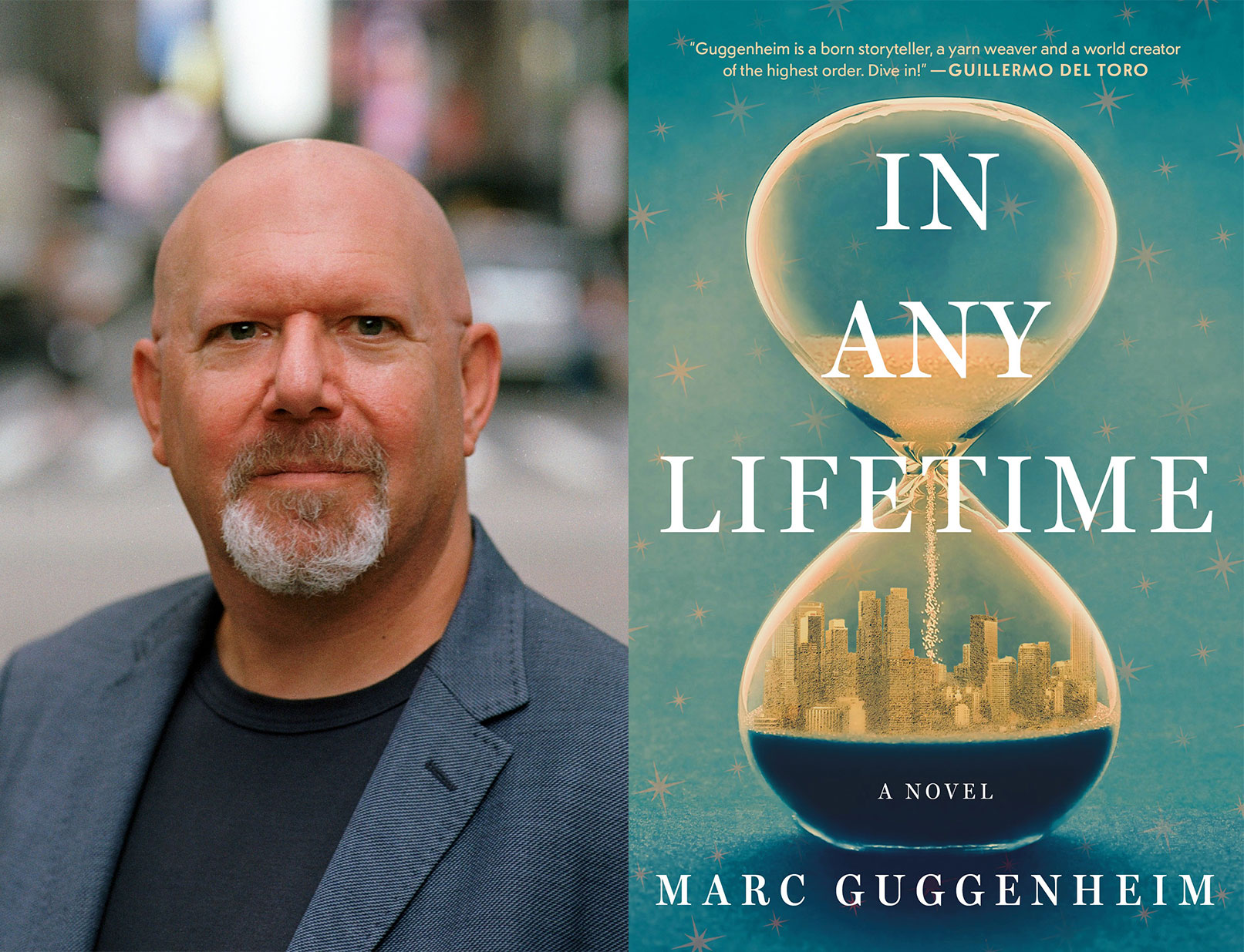



Marc Guggenheim has built a powerhouse career across television, film, comics and books — with writing and producing credits that include Arrow, Legends of Tomorrow, Green Lantern, The Practice and CSI: Miami. Over the past two decades, he’s written for some of the biggest franchises in pop culture, including Star Wars, Marvel and DC Comics.
In August 2024, Guggenheim released his second novel, In Any Lifetime — a genre-blending mix of science, suspense and romance. We caught up with the ever-prolific storyteller to learn more about his latest project.
UAlbany Magazine: Your first novel, Overwatch, was set in the world of the CIA and international intrigue. In Any Lifetime is decidedly different in terms of genre. What made you want to switch it up?
Guggenheim: For better or worse, I have a tendency to work in multiple genres, so I go where the ideas take me. That being said, I’d love to write a prose “franchise” where all (or some) of my novels are at least set in the same continuity/universe à la Scott Turow. Things just haven’t quite worked out that way. I’m working on a new novel now that could involve a doppelgänger of In Any Lifetime’s protagonist, but I have a feeling that I’ll want that book to stand on its own.
Pondering the multiverse can make one’s head spin, but you’ve made this complex theoretical science feel surprisingly approachable. How challenging was it to create these multiple realities and weave them in such a way to keep them coherent and suspenseful?
First, thank you very much for the kind words. I work in a variety of media, and I find that the willing suspension of disbelief is lowest in prose. Consequently, I’m very afraid whenever I tackle a novel set in “the real world” because I know my research has to be top-notch and more buttoned down than it has to be in my television or film work. But to answer your question, I’m not a quantum physicist. And when it comes to all this science theory, I’m very much an idiot. So to write about it, I had to teach it to myself, and to teach it to myself, I had to dumb it down such that I could understand it. And if I can understand something, everyone else can too.
Your story blends science, suspense and philosophy, pushing readers to question love and fate. Was that emotional depth part of your original vision, or did it develop along the way?
Honestly, the answer is both. Questioning the concepts of love and fate was always part of the recipe. Destiny and rebelling against destiny was always at the center of the novel. However, my editor pointed out that the bedrock theme of the novel is whether it is possible to love someone too much.
Purely coincidentally — or, at least, not consciously — I’d written this little catechism between the protagonist and his wife where they say to each other, “I love you too much.” That’s just something I often say to my daughters.
New York City feels like a quiet force in Jonas and Amanda’s story. Did you intentionally make the city part of their emotional landscape?
Yes. I’m originally from Long Island and spent a lot of my childhood in Manhattan and have an apartment there now. New York City is, for me, the most inspirational city in the world with a life and a personality all its own. I’m very gratified to hear that came through in the writing.
In Any Lifetime has such a strong visual language yet is concise. Is that influenced by your legal and comic writing? And how do you decide what to keep or cut without losing emotional impact?
I’m a naturally concise writer. You’re right that it’s probably due to my legal background. And there are strict limits on how much I can write when I write in any other medium, so my background definitely trends toward the succinct. Whenever I write a novel, I’m always worried about word count, which is probably not the best thing to be focused on.
I just sent my agent the manuscript for my latest novel, and it’s only 60,000 words, so I stress that it’s sitting in a kind of no man’s land between a novel and a novella. But rather than just being more verbose, I’ve realized that it’s better for me to push more story in my novels so the next book will be a bit more complex, plot-wise. But the concept calls for it, so I think it will all work out.
In Any Lifetime feels ready for the screen. Are there plans for a film or series adaptation?
Thanks for saying that. A lot of people have had the same observation. At the moment, however, I’m waiting for a director or producer to show interest in it.
What is Marc Guggenheim doing in an alternate reality right now?
I’ve long felt that “Marc Prime” is still practicing law in Boston. I imagine that he’s quite miserable.
UAlbany Magazine welcomes your comments and we encourage a respectful and on-topic dialogue. Comments that violate our guidelines will be removed.